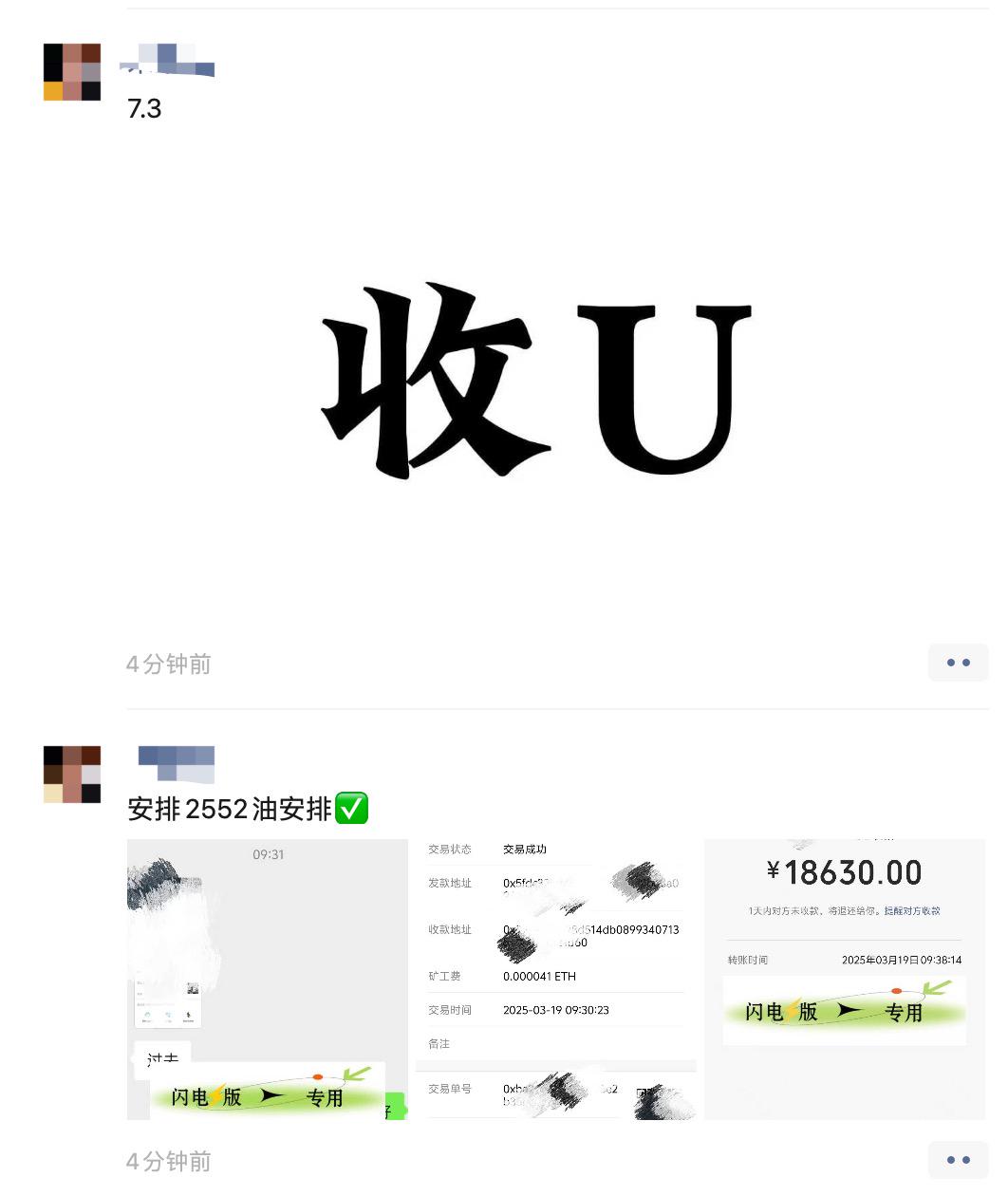本文作者:牛小静、刘红林
近年来,加密货币在全球范围内的使用越来越广泛,尤其在跨境支付、数字资产投资等领域,成为了许多用户的选择。然而,在中国内地,加密货币交易的监管政策十分明确——无论是场外交易(OTC)还是提供相关信息撮合服务,都存在法律风险。
之所以开门见山的以此为文章标题,是近期曼昆律师发现不少个人或商家在微信朋友圈发布 USDT 交易广告,试图吸引客户进行交易,但这类行为不仅涉及非法金融活动,甚至可能构成刑事犯罪。

本文曼昆律师将详细分析朋友圈发布 USDT 交易广告可能涉及的法律责任,并结合实际案例,探讨潜在的法律风险。
朋友圈 USDT 交易广告的常见形式
在社交媒体上,尤其是微信朋友圈,常见的 USDT 交易广告主要包括以下几类:
1. 单纯买卖信息:如“高价收 U”、“低点出售 USDT”、“现货秒到”等,吸引客户进行私下交易。
2. 场外交易撮合与中介:部分广告提供 USDT 代购、代售服务,甚至宣称“稳定通道”、“大额无忧”、“安全隐私”,本质上是充当场外交易中介。
3. 虚拟货币投资相关推广:例如“USDT 理财项目”、“高收益套利”等,利用虚拟货币作为投资载体吸引资金,实则可能涉及资金盘或诈骗。
4. 跨境支付、资金转移:一些广告强调“USDT 兑人民币通道”、“支持国际结算”、“无手续费跨境转账”等,可能涉及非法跨境资金流动和洗钱风险。
表面上看,这些广告与普通的市场推广并无太大区别,但在当前中国的监管体系下,这类行为很容易踩上法律红线。
朋友圈发布 USDT 交易广告可能涉及的法律责任
1. 违反金融监管规定,构成非法经营罪
根据 2021 年 9 月中国人民银行等十部门发布的《关于进一步防范和处置虚拟货币交易炒作风险的通知》,任何机构和个人不得从事涉及虚拟货币的交易撮合、支付结算、代币兑换等业务。因此,长期发布 USDT 交易广告、吸引客户进行交易并从中获利的行为,可能被认定为非法经营罪(《刑法》第 225 条)。
重庆市第一中级人民法院对一起涉及虚拟货币非法经营的案件做出了终审裁定,认为OTC属于非法从事资金支付结算业务,构成非法经营罪。虽然这起案例在曼昆律师看来,这样的判决有一定的争议,但这也确实是目前的司法实践中释放的明确信号。(此前曼昆文章:《虚拟货币OTC商不碰外汇,竟还涉嫌非法经营?| Web3创业刑事风险防范指南(三)》)。
2. 可能涉及帮助信息网络犯罪活动罪
随着虚拟货币在电信诈骗、网络赌博等非法活动中的广泛使用,监管机构对相关交易的打击力度不断加大。如果某人在朋友圈发布 USDT 交易广告,并促成了某些非法资金的流转,即使交易者本身并不知情,依然可能被追究帮助信息网络犯罪活动罪(《刑法》第 287 条之二)。
该罪名的关键点在于,交易方是否“明知或应当知道”资金来源存在问题。现实中,即便广告发布者没有直接参与诈骗、赌博等犯罪行为,但由于 USDT 交易的匿名性、便捷性,使得其很容易成为非法资金的转移工具,导致交易撮合者面临法律风险。
2023年7月,山西沁水县公安局破获一起涉案金额达3.8亿余元的USDT洗钱案。该团伙中利用上下游微信群吸引用户,为信息网络犯罪人员洗钱,涉及广西、江西、河南、安徽等多地。涉案的广告发布者虽然未直接参与洗钱行为,但因提供了便利及交易信息,被认定为帮信罪。
3. 可能被视为金融诈骗或非法集资
部分 USDT 交易广告以“套利”、“理财项目”等形式吸引投资者,宣称“高收益、低风险”,实质上属于变相的资金盘运作。这类行为一旦资金链断裂,受害者举报后,广告发布者可能因非法吸收公众存款罪或金融诈骗罪被追究法律责任。
2020年2月至2021年4月,赵某等人向社会不特定公众公开兜售,宣传公司研发的“MCKA”魔咖APP,承诺保本付高息,让集资参与人将资金转账至火币网注册的账户内,而后通过火币网购买虚拟币“USDT”,再将购买的虚拟币转账至“MCKA”魔咖APP注册的账户内形成资金池,从而控制集资参与人的资金。多人被认定构成非法吸收公众存款罪,判处 2至 4 年有期徒刑。
合规建议:如何降低法律风险?
在当前监管环境下,任何涉及 USDT 交易的宣传和推广行为都存在较高法律风险,以下是一些合规建议,以帮助个人和机构降低潜在的法律责任:
1. 远离场外交易(OTC)及中介角色,避免在朋友圈发布 USDT 交易广告
哪怕只是“高价收 U”、“低点出 U”这类信息,都可能被监管机构认定为提供虚拟货币交易撮合服务,进而被追究责任。即便是帮朋友转发,也可能因协助非法交易而面临调查。
OTC 交易是监管的重点打击对象,许多从事场外交易的中介因涉嫌非法经营罪被追责。如果参与撮合交易、赚取手续费,即便是私人交易,也可能面临刑事风险。
2. 避免提供资金通道、代收代付服务
许多 USDT 交易涉及第三方账户(俗称“卡商”),如果某人帮忙代收或代付资金,而资金最终流向诈骗、洗钱等非法活动,即使其本人不知情,也可能面临严重法律后果,甚至被列入银行“黑名单”。
3. 远离“套利”与“理财项目”类宣传
但凡宣传“稳赚不赔”或“稳定高收益”类的 USDT 投资项目,大概率是资金盘骗局。一旦项目崩盘,广告发布者可能成为受害者追责的对象,甚至被认定为金融诈骗共犯。
4. 对于确有跨境支付或数字资产投资需求的企业,建议通过合规路径
对于有跨境支付、数字资产管理需求的企业,可以考虑在香港、新加坡等地设立合规公司,申请相关金融牌照,并使用受监管的渠道进行业务操作。这样不仅能规避国内监管风险,还能确保交易安全与合规。
曼昆律师总结
微信朋友圈发布 USDT 交易广告,看似是简单的市场推广,实则涉及非法经营、帮助犯罪、金融诈骗等多重法律风险,稍有不慎,就可能触及刑事红线。目前在中国内地,无论是个人还是机构,最稳妥的做法是远离场外交易,不参与任何 USDT 交易撮合或宣传活动,确保自身行为符合法律规定。
如果已经发布了类似广告或从事相关交易,建议立即停止,并咨询专业律师,确保自身合法权益不受损害。在当前监管环境下,保持合规是最稳妥的选择,任何打擦边球的行为,都可能带来不可预见的法律风险。






